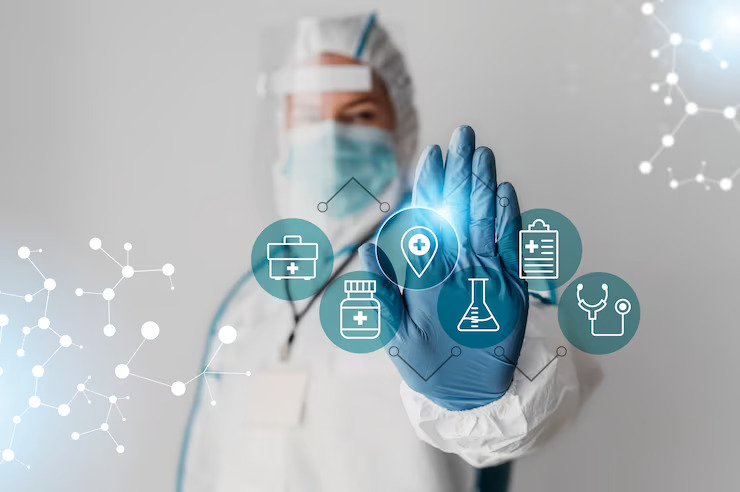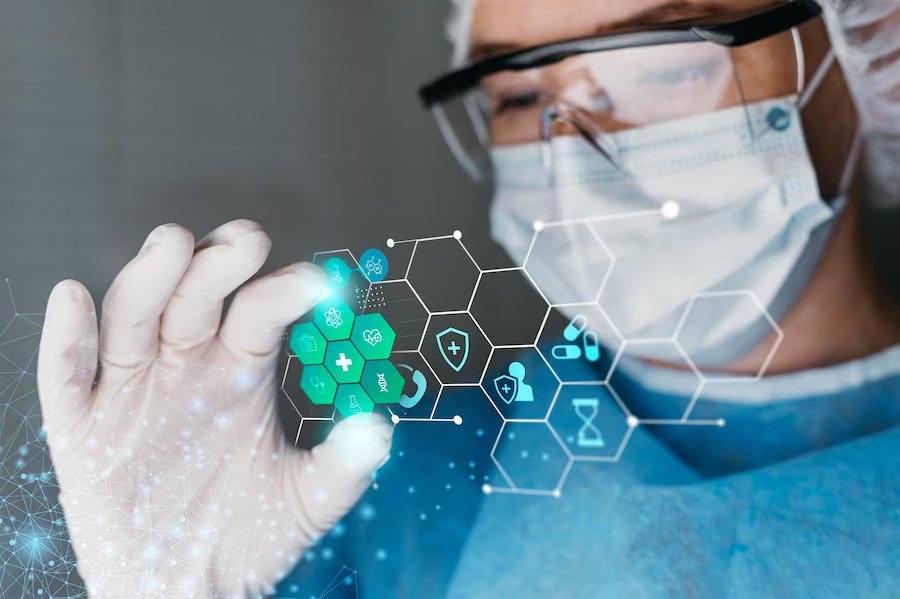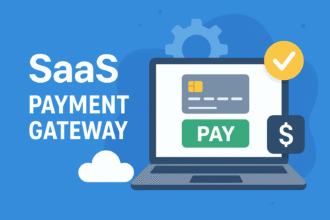6 Ways IT Services are Helping the Healthcare Industry
Technology has long been relied upon by the healthcare industry as a means to improve patient care and increase operational efficiency. As a result of the proliferation of information technology (IT) services, providers of medical care are increasingly making use of cutting-edge technologies to give patients superior care. In the following paragraphs, we will go through six of the ways that information technology services are assisting the healthcare sector.
IT services for healthcare play a critical role in improving patient care, increasing operational efficiency, and ensuring better data management. Healthcare professionals can enhance patient outcomes by streamlining workflows and optimizing resources with the help of IT technologies. IT services can also aid in the reduction of medical errors, the accuracy of diagnoses, and the improvement of communication between healthcare personnel and patients.
6 Best Ways IT Services Help the Healthcare Industry

Health Information Exchange (HIE)
Another essential information technology service for the healthcare industry is known as health information exchange (HIE). Through the use of HIE, healthcare practitioners can safely share patient data across a variety of healthcare organizations and systems. This makes it simpler for physicians to coordinate care and increases the likelihood that patients will receive the care that is best suited to their needs. HIE also helps to eliminate wasteful testing and duplication of services, both of which contribute to the rising cost of medical care.
Telemedicine
Telemedicine is one more method that information technology services are contributing to the improvement of the healthcare industry. Through the use of video conferencing and various other technologies, patients can now receive medical care from a healthcare provider at a remote location thanks to telemedicine. Patients who live in remote locations or who have trouble traveling to a healthcare institution will find this to be of special benefit. The fact that patients no longer have to travel to their appointments is another way in which telemedicine can help bring down the cost of medical treatment.
Medical Imaging
The improvement of medical imaging solutions is another way that information technology services are assisting the healthcare industry. Magnetic resonance imaging (MRI) and computed tomography (CT) scans are two examples of more advanced imaging methods that have been made possible as a result of technological developments. These technological advancements produce images of the body that are more detailed and accurate, which in turn can lead to improved diagnostics and treatment of medical disorders.
Electronic Health Records (EHRs)
The utilization of electronic health records (also known as EHRs) is among the most significant benefits that IT services bring to the healthcare industry. Electronic health records make it possible to store and retrieve patient information in a way that is both safe and effective. They serve as a central repository for patient information, which may include a patient’s medical history, allergies, prescriptions, lab results, and other essential data.
This makes it much simpler for healthcare personnel to obtain the information they require to arrive at educated judgments regarding the care of their patients. EHRs enable doctors to access the medical records of a patient from any location at any time, which paves the way for care that is better coordinated and more effective.
Remote Monitoring
Another crucial information technology service for the healthcare industry is remote monitoring. With the use of various sensors and other tools, this technology gives medical professionals the ability to remotely monitor their patients. This is especially helpful for people who have illnesses that last for a long time, such as diabetes or cardiovascular disease. The ability to notice changes in a patient’s condition at an earlier stage through the use of remote monitoring can assist medical professionals in providing timely intervention and treatment.
Artificial Intelligence (AI)
Artificial intelligence is also playing an increasingly essential role in the field of healthcare. It may be difficult for humans to recognize some patterns in massive amounts of data, but AI can analyze this data and find them for us. This may result in a more precise diagnosis and subsequent course of treatment for medical disorders. Additionally, AI can be used to generate individualized treatment regimens for patients, taking into account the patient’s specific medical history as well as their present state of health.
Electronic health records and telemedicine are only two examples of how information technology services are assisting the healthcare industry. Other areas of assistance include health information sharing, medical imaging, remote monitoring, and artificial intelligence. These technologies are helping to improve patient care as well as operational efficiency while also contributing to a reduction in the overall cost of healthcare. As a result of the ongoing development of technology, we may anticipate the emergence of even more ground-breaking solutions, which will further improve the state of the healthcare industry.

















